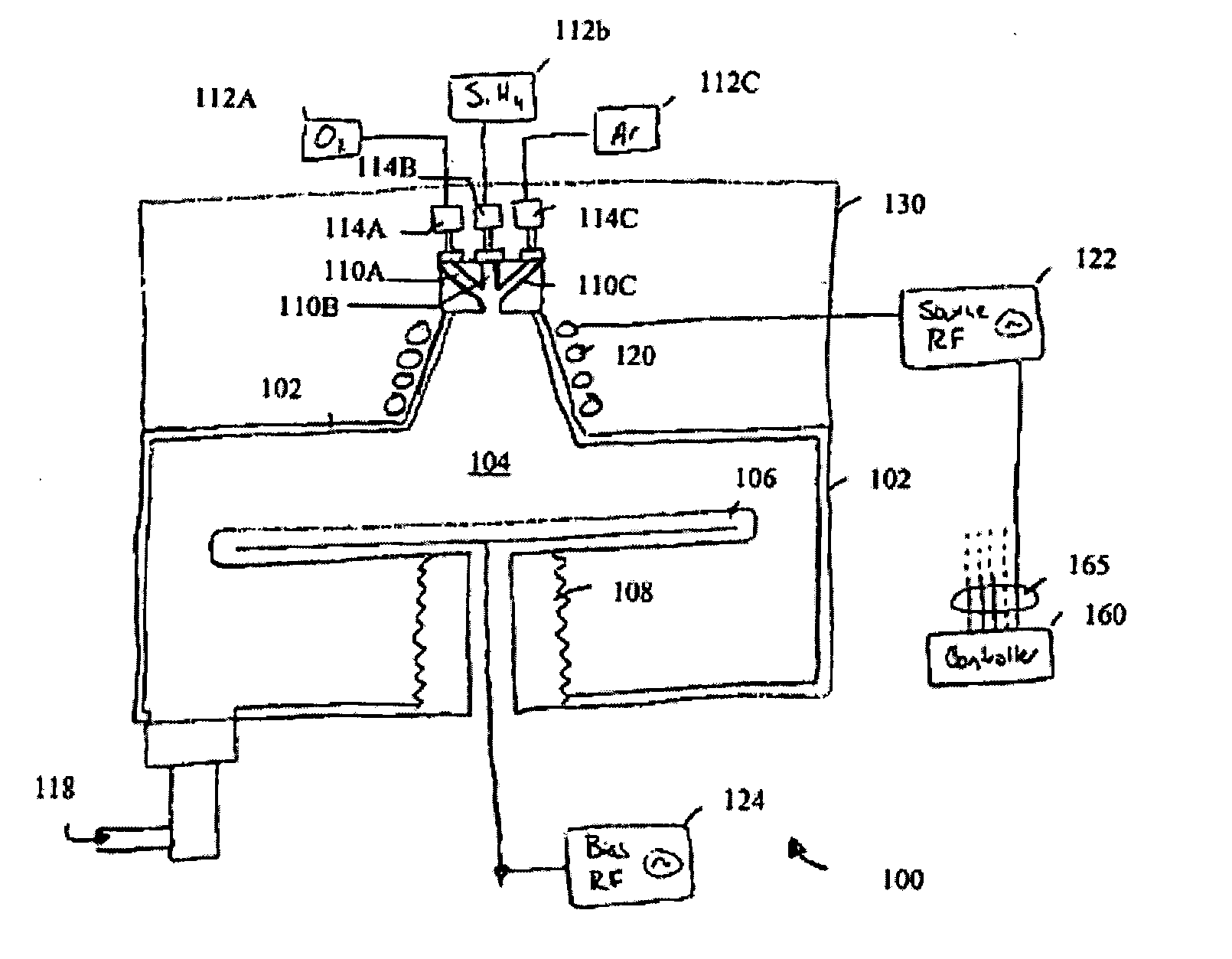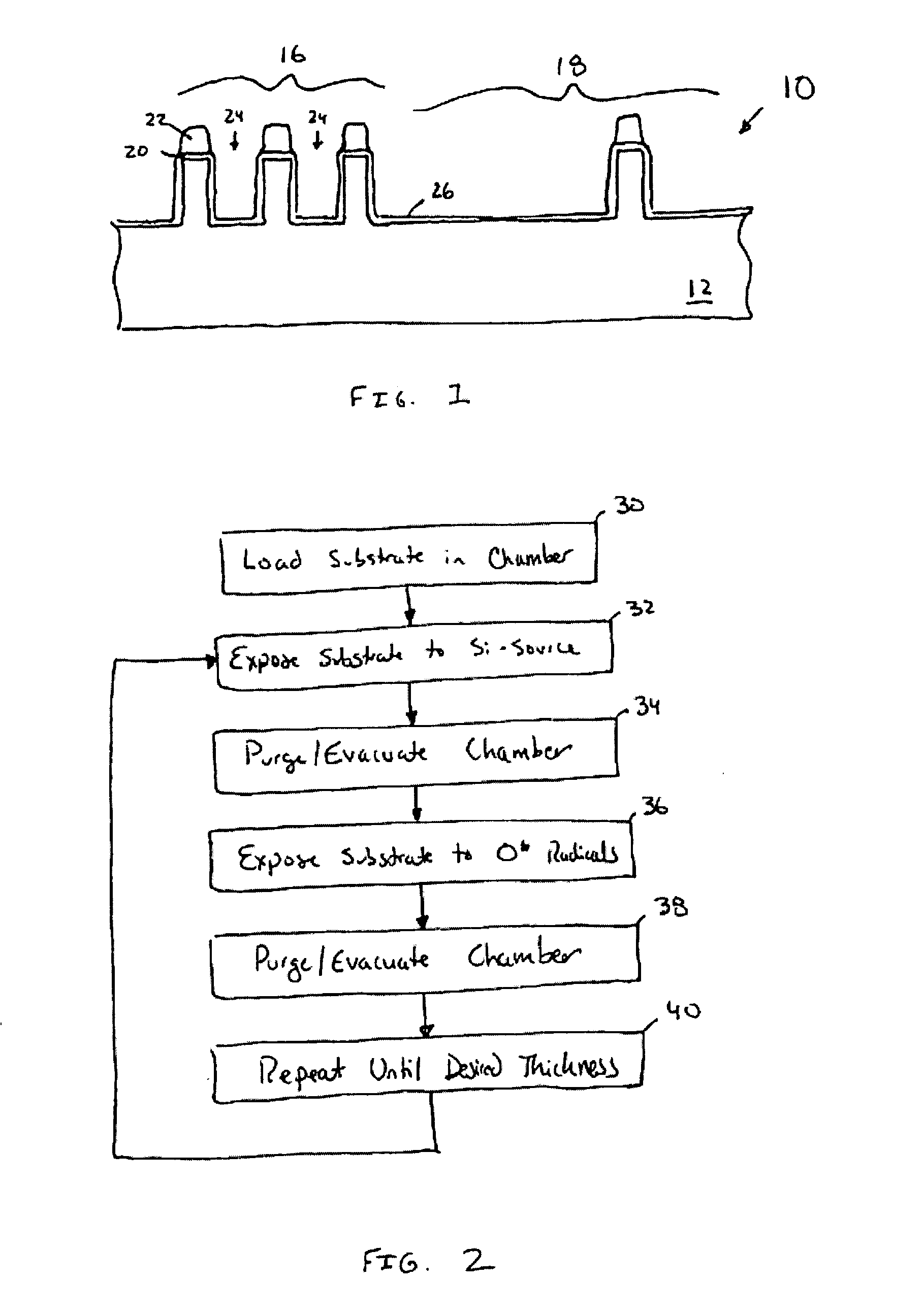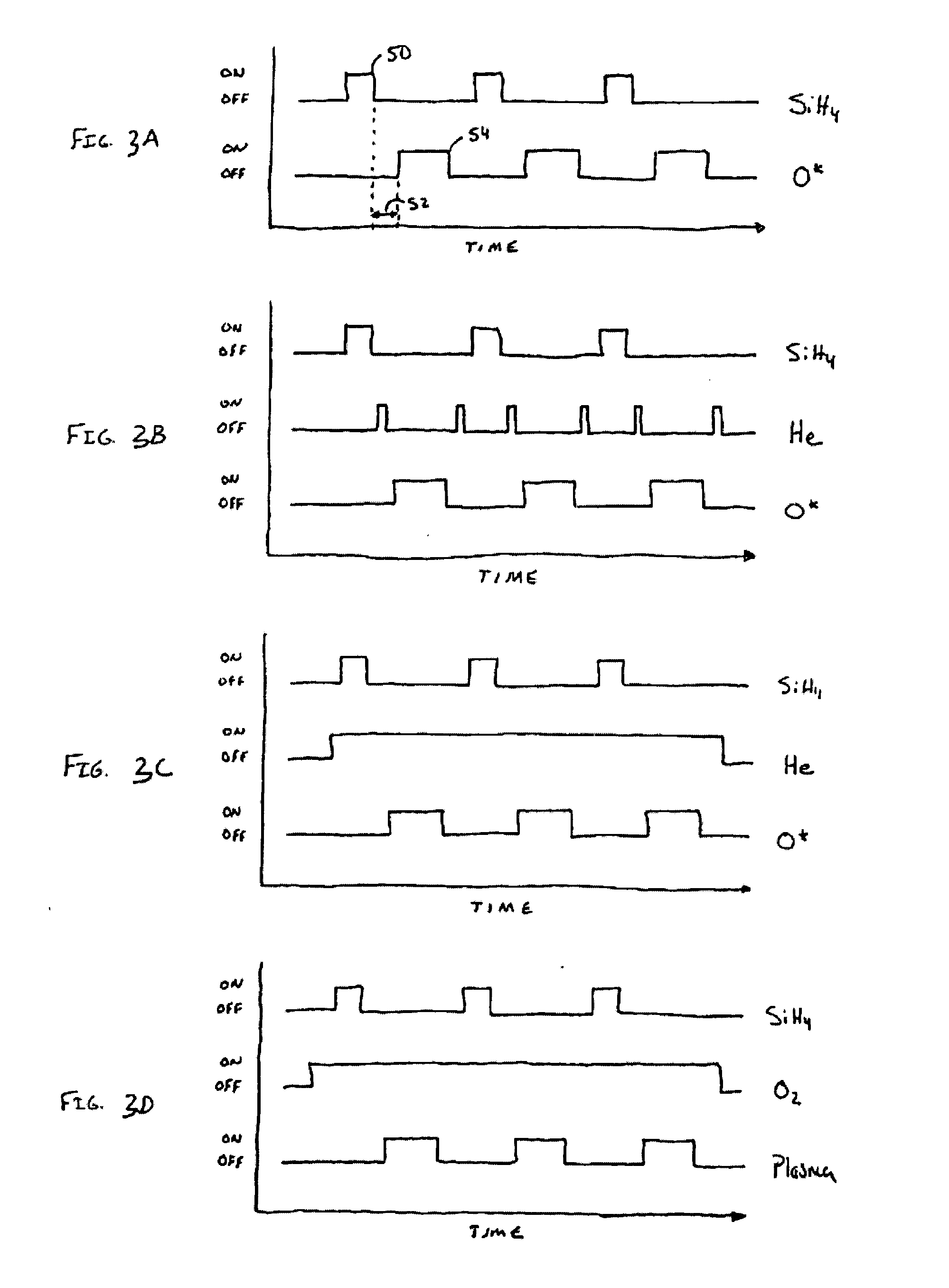Sequential gas flow oxide deposition technique
- Summary
- Abstract
- Description
- Claims
- Application Information
AI Technical Summary
Benefits of technology
Problems solved by technology
Method used
Image
Examples
Embodiment Construction
[0018] Embodiments of the invention pertain to a process for depositing a silica glass dielectric material using ALD techniques. Some embodiments of the invention permit the dielectric material to be deposited into closely-spaced gaps with substantially 100% gap fill for most currently envisioned small-width, high aspect ratio applications. For example, for gaps having a width of 0.10 microns substantially 100% gapfill can be achieved by embodiments of the invention for aspect ratios of 8:1 and even higher in both the active and open areas of an integrated circuit die. Other embodiments of the invention are particularly useful for depositing blanket silica glass films having a high density and exhibiting good stochiometry. Embodiments of the invention are useful for a variety of different applications and are particularly useful for the fabrication of integrated circuits having minimum feature sizes of 0.10 microns or less.
[0019] In order to better appreciate and understand the pre...
PUM
| Property | Measurement | Unit |
|---|---|---|
| Temperature | aaaaa | aaaaa |
| Power | aaaaa | aaaaa |
| Pressure | aaaaa | aaaaa |
Abstract
Description
Claims
Application Information
 Login to View More
Login to View More - R&D
- Intellectual Property
- Life Sciences
- Materials
- Tech Scout
- Unparalleled Data Quality
- Higher Quality Content
- 60% Fewer Hallucinations
Browse by: Latest US Patents, China's latest patents, Technical Efficacy Thesaurus, Application Domain, Technology Topic, Popular Technical Reports.
© 2025 PatSnap. All rights reserved.Legal|Privacy policy|Modern Slavery Act Transparency Statement|Sitemap|About US| Contact US: help@patsnap.com



